More than 70 of the 94 calls to action issued by the Truth and Reconciliation Commission of Canada involve education in some form. Here are just some of the many ways to begin educating yourself.
New MOOC focuses on Indigenous Canada
Indigenous Canada, a free massive open online course offered by the Faculty of Native Studies at the U of A, explores Indigenous peoples' history and contemporary issues from their perspective. From storytelling and Indigenous culture to land claims and legal rights, the 12-week course offers a historical and critical perspective on national and local relationships.
How to Have Those Difficult Conversations
Being an ally can sometimes lead to challenging conversations. U of A professors offer a few thoughts that might help.
By Omar Mouallem
Use Examples, Not Statistics
Don't try to persuade people with statistics and facts. Instead, try human stories that appeal to a person's sense of fairness, family or community, suggests political science professor David Kahane. Developing perspective helps. Try to see the world through the opposition's eyes, then respond with a personal anecdote that offers an alternative view.
Admit Your Privileges and Biases
"People rarely think negatively of a group they belong to," says gender studies professor Amy Kaler. It helps to reflect on how, for instance, race, gender or education might contribute to success - or have the opposite effect for someone of a different race, gender or socio-economic background.
Talk to People in Person
"We need to enable people to talk to others on buses and elevators and at the dinner table," says political scientist Malinda Smith, '93 PhD. It's tempting to dive in but social media bickering will get you nowhere fast. "The stronger remedy is … being out there in the political and civic world in ways that do bring us into contact with people with more diverse views," echoes Kahane. "Skilful action is built on this kind of conversation."
What Can I Do?
Roberta Jamieson, Mohawk lawyer and CEO of Indspire, offered some advice at the Visiting Lectureship in Human Rights at the University of Alberta last November. "Don't get stuck in the guilt, don't get stuck in the paralysis, don't get stuck in the history pages," she said. "Take the facts on-board but move forward with us together."
- Acknowledge the facts.
- Work proactively to build relationships.
- Do what you can do in your own sphere.
- Start a conversation every day with someone you know on this topic.
- Raise it in your place of worship, in your classroom.
- Keep these issues alive.
- Create the political will: call your MP and elected officials. Make it an issue wherever you are. Ask every leader how they will implement the calls to action.
- Keep it alive and do what you can in your sphere to build relationships with Indigenous people.
- Lend your support, volunteer.
- Change your workplace: create space for Indigenous employees to be welcomed; create a place for them to feel valued; hire Indigenous employees.
- There's so much you can do to change history. Think about what you can do in your life, your time, your sphere of influence.
Roberta Jamieson is the first First Nations woman in Canada to earn a law degree and the first woman elected chief of the Six Nations of the Grand River Territory. She is also president and CEO of Indspire, an Indigenous-led registered charity that invests in the education of Indigenous people.
Reading Toward Reconciliation
As moderator of A Conversation About Reconciliation, hosted by the Edmonton Public Library, Shelagh Rogers shared a selection of fiction, non-fiction, poetry and children's books that explore residential schools, reconciliation and Indigenous identity. The full list of 45 books can be found at epl.ca under EPL Picks.
Compiled by Heather O'Sullivan, Gabriola Island Local Trustee, Islands Trust, in consultation with Shelagh Rogers
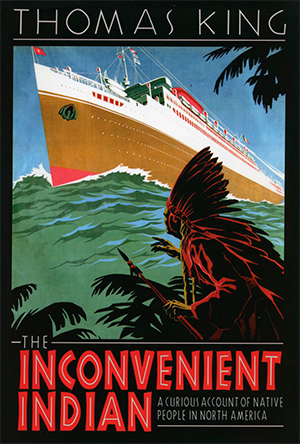
The Inconvenient Indian: A Curious Account of Native People in North America
Non-Fiction 2013
by Thomas King
Thomas King offers a critical and personal meditation about what it means to be "Indian" in North America.
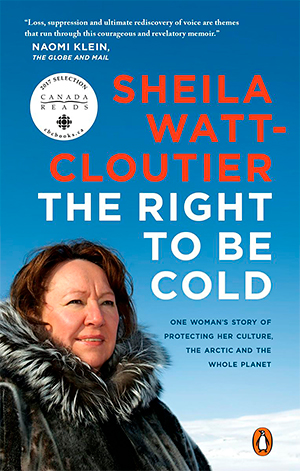
The Right to Be Cold: One Woman's Story of Protecting Her Culture, the Arctic and the Whole Planet
Non-fiction 2015
by Sheila Watt-Cloutier, '09 LLD(Honorary)
Sheila Watt-Cloutier explores the parallels between safeguarding the Arctic and the survival of Inuit culture in the face of environmental degradation.
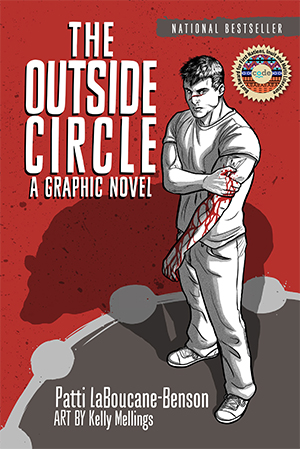
The Outside Circle: A Graphic Novel
Young Adult 2015
by Patti LaBoucane-Benson,'90 BPE, '01 MSc, '09 PhD, and Kelly Mellings, '00 BFA
Patti LaBoucane-Benson draws on 20 years of work and research on healing and reconciliation with gang-affiliated and incarcerated Aboriginal men to tell the story of two brothers surrounded by poverty, gang violence and drug abuse who try to break free of the trauma in their lives.
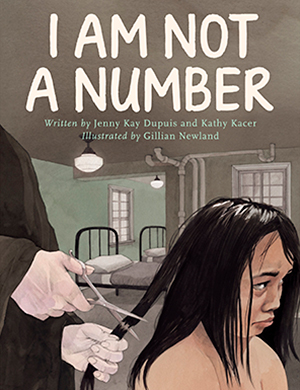
I Am Not a Number
Children 2016
by Jenny Kay Dupuis and Kathy Kacer
The story of co-author Dupuis's grandmother, Irene Couchie Dupuis, who was taken to residential school in 1928, is told through the eyes of eight-year-old Irene.
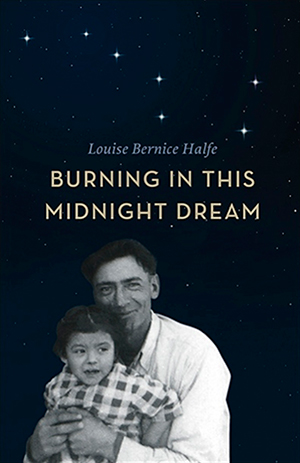
Burning in This Midnight Dream
Poetry 2016
by Louise Bernice Halfe
In this collection, Louise Bernice Halfe responds to the emotions, memories, dreams and nightmares that arose in her as the Truth and Reconciliation process unfolded.
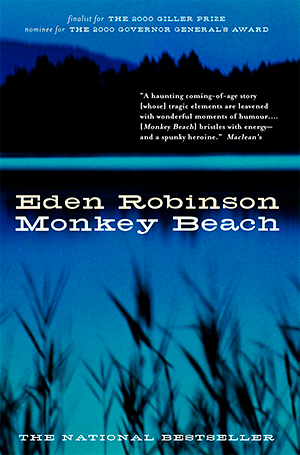
Monkey Beach
Fiction 2001
by Eden Robinson
Eden Robinson combines joy and tragedy in a story of grief and survival and of a family on the edge of heartbreak, set in the Haisla settlement of Kitamaat on the British Columbia coast.
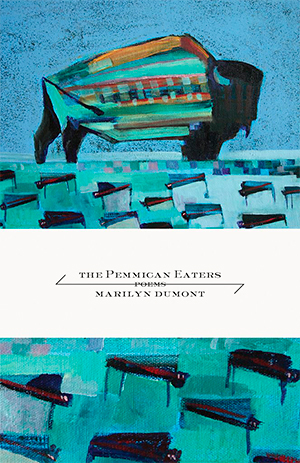
The Pemmican Eaters
Poetry 2015
by Marilyn Dumont, '90 BA
Marilyn Dumont recreates a sense of the Riel Resistance period and Batoche through the eyes of those who experienced the battles. Winner of the Stephan G. Stephansson Award for Poetry.
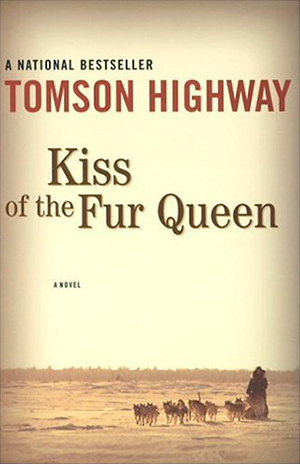
Kiss of the Fur Queen
Fiction 1998
by Tomson Highway
Tomson Highway infuses stark realism with the magic of Cree culture and blends tragedy with comedy in the story of the Okimasis brothers' fight to survive.
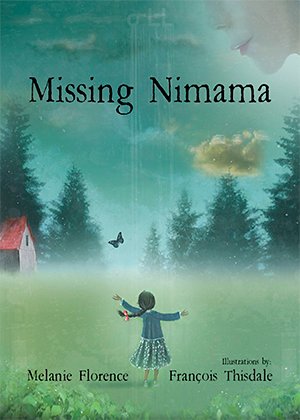
Missing Nimâmâ
Children 2015
by Melanie Florence
This story follows the life of Kateri, a young girl growing up with her grandmother. Her absent mother is among Canada's missing and murdered Indigenous women. As Kateri grows up, her mother is always there, watching her child grow up without her.
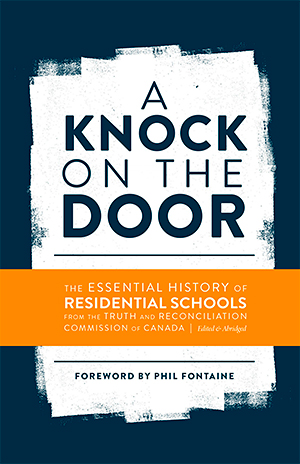
A Knock on the Door: The Essential History of Residential Schools from the Truth and Reconciliation Commission of Canada
Non-fiction 2015
Published in collaboration with the National Research Centre for Truth and Reconciliation, the book gathers material from the several reports the TRC has produced to present the essential history and legacy of residential schools.
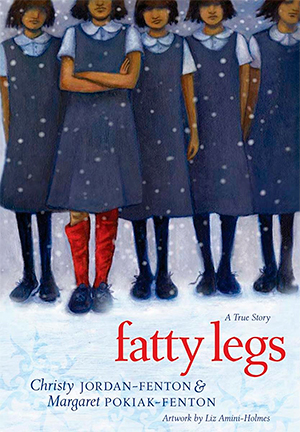
Fatty Legs: A True Story
Young Adult 2010
by Christy Jordan-Fenton and Margaret Pokiak-Fenton
A moving memoir of an Inuit girl who emerges from a residential school with her spirit intact.
How to Learn More
Resources for exploring the past, present and future of First Nations, Métis and Inuit peoples
Truth and Reconciliation Commission of Canada
Links to findings, reports, survivors' statements and more
trc.ca
National Centre for Truth and Reconciliation
Preserves the memory of the residential school system and legacy
umanitoba.ca/centres/nctr/index.html
U of A Indigenous Index
Links to resources, programs and events at the U of A
ualberta.ca/aboriginal-indigenous
Indigenous and Northern Affairs Canada
A federal government website with information about Indigenous groups, treaties, funding and programs.
aadnc-aandc.gc.ca/eng
United Nations Declaration on the Rights of Indigenous Peoples
un.org/esa/socdev/unpfii/documents/DRIPS_en.pdf
Historica Canada
Offers a timeline of residential schools and more
thecanadianencyclopedia.ca
Métis Nation of Alberta
The Métis government for Métis Albertans
albertametis.com
Inuit Tapiriit Kanatami
Advances the rights and interests of Inuit in Canada
itk.ca
Reconciliation Canada
Devoted to reconciliation programs and initiatives reconciliationcanada.ca
Reconciliation in Solidarity Edmonton
A group of citizens committed to supporting reconciliation in words and actions
facebook.com/RISEdmonton
Canada's History Society
Webinars offering insight into Canada's treaties
canadashistory.ca/Explore/Webinars
First Nations Child & Family Caring Society of Canada
Serves Aboriginal children and families
fncaringsociety.com
Tarene Thomas, Indigenous student blogger
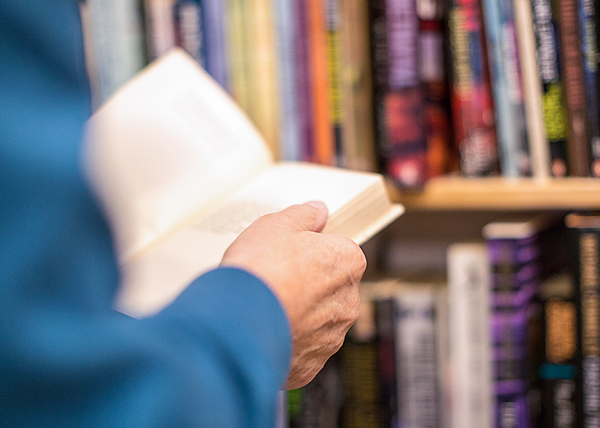
We at New Trail welcome your comments. Robust debate and criticism are encouraged, provided it is respectful. We reserve the right to reject comments, images or links that attack ethnicity, nationality, religion, gender or sexual orientation; that include offensive language, threats, spam; are fraudulent or defamatory; infringe on copyright or trademarks; and that just generally aren’t very nice. Discussion is monitored and violation of these guidelines will result in comments being disabled.